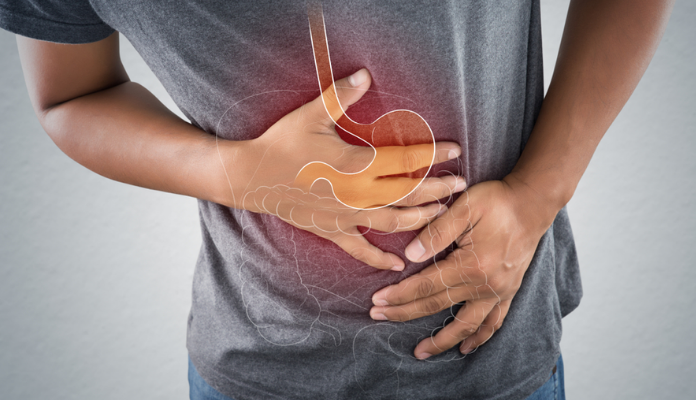Gastroenteritis – Is it Serious
Gastroenteritis is an inflammation or infection of the digestive tract, mainly the stomach and intestines. It is probably the most commonly occurring illness with an average person having about three to four bouts in a year. The illness can sometimes be minor and the person may experience only nausea and it may go completely unrecognized but on the other hand, it can also be very severe leading to death within a few days.
Gastroenteritis is very common in children and accounts for high infant mortality in our country mainly due to poor hygiene, lack of education and scarcity of health resources.
Symptoms
Within hours or a day of consuming contaminated food or water one will develop nausea, vomiting, anorexia, cramps and abdominal pain, fatigue, low grade fever and diarrhoea with or without blood. Symptoms are generally mild in most patients and can be managed at home by supportive treatment. Infants, young children and very elderly people can rapidly become sick and dehydrated within hours and should consult a doctor and if advised, must be hospitalized. Any delay in treatment can be life-threatening.
Worrying Symptoms
Severe vomiting, profuse watery diarrhoea, severe abdominal pain, high fever, bloody diarrhoea or vomiting, reduced urine output, reduced oral intake and poor mentation. Patients with such symptoms should be hospitalized.
Causes
Bacteria, viruses, parasites, bacterial toxins various chemicals and drugs cause gastroenteritis. Viral gastroenteritis is very common in infants and children and occurs during the winter months. It is generally a minor illness and is resolved within a few days. No specific treatment is required except adequate hydration.
Bacterial gastroenteritis can be very severe, generally caused by the consumption of contaminated water or food. Cholera is a severe form of bacterial gastroenteritis which is a rapidly progressive illness and may be fatal if left untreated. Poor personal hygiene may lead to the spread of the infection among close contacts. Tiny parasites like giardia and amoeba which spread through unclean water can cause gastroenteritis though in less severe form.
Unrefrigerated or poorly refrigerated food during summer months and mainly milk and milk products, non. vegetarian food items get contaminated by bacteria which in turn produce a toxin. This toxin is the cause of a rapid onset of gastroenteritis typically seen alter unhygienic wedding dinners. Also, certain drugs like some antibiotics can cause gastroenteritis by irritating the stomach and intestines but this is generally minor and self-limiting.
Diagnosis
Typical history of eating unhygienic food followed by diarrhoea vomiting and abdominal pain is enough to suggest the diagnosis. In some cases, physical examination and simple blood, urine and stool tests are enough to confirm the diagnosis.
Treatment
Clean water and resorting to a liquid or light diet for a day or two is recommended. It is wrong to aggressively treat diarrhoea or vomiting in all patients as diarrhoea and vomiting is the natural mechanism of the body to get rid of the infectious agents and toxins. For moderate to severe gastroenteritis, drinking plenty of water with ORS (oral rehydration solution) which is available at a pharmacy is advisable.
Two pinches of salt, a heaped tablespoon of sugar, one lemon or an orange juice mixed with a litre of water is just as good as an ORS. Volume of fluid consumption must match with the volume of liquid lost in diarrhoea and vomits or dehydration will set in. If the fluid ¡s continued to be vomited out and if there are more than six watery loose motions, it is time to see the doctor who may advise hospitalization for the treatment.
Antibiotics are reserved for frequent large volume watery foul smelling diarrhoea. The tablets ofloxacil, ciprofloxacin and cotrimoxazole – one tablet twice a day for three days is good enough for most patients provided it is not vomited out. For frequent vomiting ondensetron or domperidone tablets for a day or two will suffice. One should continue to have a liquid diet without milk as much as can be tolerated or fruits without skin at the same time.
Infants, young children and very elderly people should be seen by the doctor if they have persistent symptoms of gastroenteritis. Delayed treatment can cause severe dehydration which will lead to kidney failure.
Prevention
- Drink clean water and consume fresh homemade food as far as possible
- If you are not sure about the water quality, boil it before drinking or use reliable brands of mineral water.
- Store cooked food ¡n the fridge below five degrees Celsius temperature
- It milk or milk products and non- vegetarian food do not taste or smell good and if you are not sure about its storage, do not consume it.
- Avoid eating salads or chopped fresh fruits outside during summer/ monsoon months unless you are sure about the quality and hygiene.
- Wash your hands thoroughly each time before cooking, before having your meals and after visiting the toilet.
- In the case of gastroenteritis, dispose of the vomit/stools properly, clean the toilet and toilet seat properly and wash hands with soap along with a hand sanitizer.
- Senior members of the family should educate junior members about hygiene
